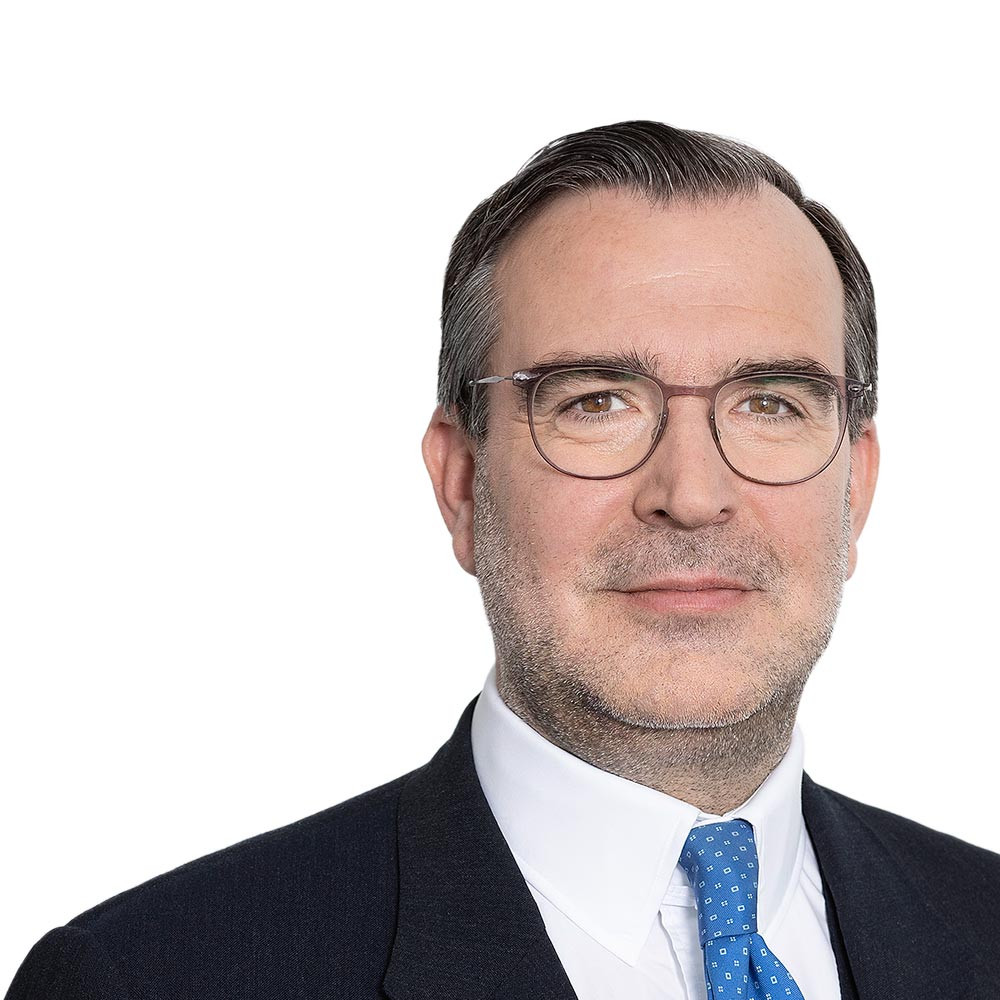Mr. Posavac, Mr. Kramarsch, thank you very much!

Michael H. Kramarsch is founder, Delegate of the Board and Managing Partner of the hkp /// group.
In his more than 20 years consulting business he has established himself as one of the most highly regarded experts in the field of value-oriented management, corporate governance, performance management and top-executive compensation - in industrial companies as well as banks. His consulting expertise to Boards (Aufsichts- und Verwaltungsräte), Executive Boards and HR managers spans Germany, Switzerland and Austria – as well as additional European countries and the U.S.
Prior to founding hkp/// group on January 1st 2011, Mr. Kramarsch worked 13 years for an international HR management consulting firm. There he held various management and executive positions, e.g. as Managing Partner for the German-speaking regions.
Jointly with Prof. Fred G. Becker, Michael H. Kramarsch published one of the first studies in German-speaking countries on value-oriented corporate management and incentives in 1997. His book on equity-based management compensation (“Aktienbasierte Management-Vergütung”, Schaeffer Poeschl), available as second edition, is still considered a standard reference of executive compensation in Germany. Together with Dirk Filbert he analyzed the regulatory framework conditions of an altered remuneration landscape in "Performance-based remuneration in the banking business", a chapter of the "Handbook Corporate Governance in Banks" (Ed. Hopt, K. and Wohlmannstetter, G., Vahlen / CHBeck, June 2011).
Michael H. Kramarsch was a named specialty expert for German regulatory bodies as Governmental Commission on Corporate Governance (Deutsche Regierungskommission Corporate Governance), managed by Chairman Prof. Dr. T. Baums (2001), and The Government Commission German Corporate Governance Code (Regierungskommission DCGK) managed by the Chairmen Klaus Peter Müller und Dr. Manfred Gentz (2012 to 2014). He is founding member and CEO of the German Association of Independent Compensation Consultants (VUVB) as well as member of the advisory board of HHL Center for Corporate Governance, Leipzig.
Mr. Kramarsch is regularly cited in articles, lectures and publishes on current developments in corporate governance, top executive compensation and performance management.
Michael H. Kramarsch is founder, Delegate of the Board and Managing Partner of the hkp /// group.
In his more than 20 years consulting business he has established himself as one of the most highly regarded experts in the field of value-oriented management, corporate governance, performance management and top-executive compensation - in industrial companies as well as banks. His consulting expertise to Boards (Aufsichts- und Verwaltungsräte), Executive Boards and HR managers spans Germany, Switzerland and Austria – as well as additional European countries and the U.S.
Prior to founding hkp/// group on January 1st 2011, Mr. Kramarsch worked 13 years for an international HR management consulting firm. There he held various management and executive positions, e.g. as Managing Partner for the German-speaking regions.
Jointly with Prof. Fred G. Becker, Michael H. Kramarsch published one of the first studies in German-speaking countries on value-oriented corporate management and incentives in 1997. His book on equity-based management compensation (“Aktienbasierte Management-Vergütung”, Schaeffer Poeschl), available as second edition, is still considered a standard reference of executive compensation in Germany. Together with Dirk Filbert he analyzed the regulatory framework conditions of an altered remuneration landscape in "Performance-based remuneration in the banking business", a chapter of the "Handbook Corporate Governance in Banks" (Ed. Hopt, K. and Wohlmannstetter, G., Vahlen / CHBeck, June 2011).
Michael H. Kramarsch was a named specialty expert for German regulatory bodies as Governmental Commission on Corporate Governance (Deutsche Regierungskommission Corporate Governance), managed by Chairman Prof. Dr. T. Baums (2001), and The Government Commission German Corporate Governance Code (Regierungskommission DCGK) managed by the Chairmen Klaus Peter Müller und Dr. Manfred Gentz (2012 to 2014). He is founding member and CEO of the German Association of Independent Compensation Consultants (VUVB) as well as member of the advisory board of HHL Center for Corporate Governance, Leipzig.
Mr. Kramarsch is regularly cited in articles, lectures and publishes on current developments in corporate governance, top executive compensation and performance management.


hkp/// group and Ipreo have analyzed the ownership structure of DAX-listed companies and worked out how different investors and proxy advisors act in relation to management board remuneration and what kind of patterns can be identified.
21. December 2017
From Michael H. Kramarsch


Equity-based compensation continues to grow in importance as persistent inflation and geopolitical tensions across the globe remain prevalent. For more insights visit the executive summary.